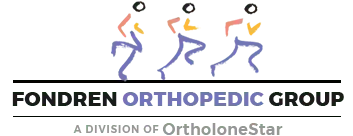
The manufacturer of a cancer drug with a target long thought “undruggable” has said it produced “positive” topline results in an ongoing Phase II trial.
Without providing data, Thousand Oaks, California-based Amgen said Monday that results from 126 patients with advanced non-small cell lung cancer in the Phase II portion of the Phase I/II CodeBreaK 100 study of sotorasib showed an objective response rate comparable to what has been seen in Phase I testing of the drug among patients with NSCLC who received it at the recommended Phase II dose of 960mg. The company added that duration of response was also “promising,” with more than half of responders still on treatment and continuing to respond as of the cutoff, while safety and tolerability were likewise comparable to Phase I. Patients in the Phase II data set had failed on a median of two prior therapies, including chemotherapy or immunotherapy.
The company said it had submitted the data for presentation at the IASLC 2020 World Congress on Lung Cancer in January and would potentially use them to seek approval for the drug.
Shares of Amgen (Nasdaq: AMGN) were mostly flat in midday trading on the Nasdaq Tuesday.
“Targeting KRAS has been a 40-year quest that has left patients with limited options,” Amgen executive vice president of research and development David Reese said in a statement. “These topline data underscore our belief in the potential for sotorasib to become the standard of care for non-small cell lung cancer patients with KRAS G12C mutation who remain in need of new treatment options.”
The company published and presented Phase I data from CodeBreaK 100 last month, showing a 35.3% objective response rate and 91.2% disease control rate among 34 patients who received a median two prior therapy lines. However, the data received mixed reactions from analysts, some of whom saw the drug’s potential for approval as a monotherapy, while others saw its future in combination treatments, noting that response rate data had seemed to wane over time.
In a note to investors Monday evening, Baird analyst Brian Skorney called the results “ambiguously positive.” On the one hand, he wrote, the omission of data would seem to be incrementally negative, but given that patients in previous data announcements who had received doses other than 960mg had shown a 28% overall response rate, the Phase II rate is likely at least 30%.
“Sotorasib will play a role in KRAS-G12C lung cancer, but we believe it will be in a more limited and competitive space than investors give it credit for,” Skorney wrote.
Photo: mr.suphachai praserdumrongchai, Getty Images










